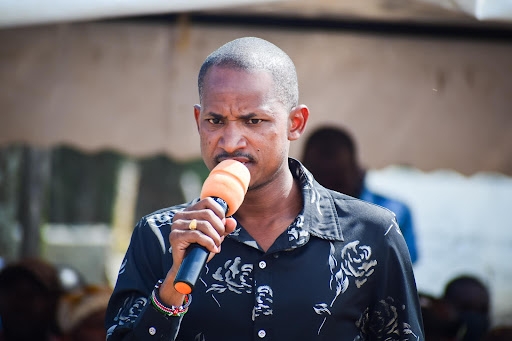
The High Court has acquitted Jonathan Omwanda Anjere, who was previously convicted of rape, after determining that the prosecution had not established critical elements of the offence beyond a reasonable doubt.
Justice Patrick Otieno delivered the judgment overturning the 15-year sentence handed down by the Butere Magistrate’s Court.
On May 28, 2020, the appellant was charged under the Sexual Offences Act with raping an adult woman who was mentally challenged.
He also faced an alternative charge of committing an indecent act.
At trial, the appellant pleaded not guilty, and the prosecution called six witnesses to substantiate the claims.
According to court documents, the victim’s mother testified that on the day of the incident, her other daughter witnessed the appellant and raised the alarm.
"PW1 (the mother) stated that on 28/5/2020 she was in the house when her other daughter, PW2, emerged and remarked, “Omwanda ana rape R to mean “Omwanda is raping R," read the judgement.
She proceeded to the scene, which was behind her brother-in-law’s pit latrine, and found the complainant had left the scene, though she found her on the footpath adjacent to her brother-in-law’s house.
Upon checking, she found the victim in a compromised state and immediately reported the matter to local authorities before taking her daughter to a hospital for examination.
She also noted that her daughter had a history of epileptic episodes.
The sister who is said to have first witnessed the incident gave evidence under voir dire, confirming that she saw the appellant on top of the victim and raised the alarm.
Village members arrived and helped apprehend the appellant.
Other witnesses, including a village elder and a local resident, corroborated the sequence of events, describing how the appellant was pursued and arrested after the commotion.
Court documents point out that the clinical officer who examined the victim observed a white discharge and noted the absence of the hymen.
"PW5, a Clinical Officer, testified that she examined the victim following an incident of rape and that she was visibly mentally retarded, her panty had white discharge that appeared like mucus, and her hymen was missing.
"Laboratory investigations revealed epithelial cells in her urine, but high vaginal swab, pregnancy, and HIV tests were negative. No visible injury was observed on the victim," the documents stated.
The investigating officer recorded the scene, collected statements, and assisted in the arrest.
During the defense, the appellant denied any involvement, explaining that he had gone to the area to investigate a scream and was subsequently arrested.
Notably, the record shows that he was not subjected to cross-examination during the trial, raising concerns about whether his defense was fully considered.
Despite these issues, the trial court found him guilty and sentenced him to 15 years in prison, a term within the statutory range for the offence.
On appeal, the appellant argued that the trial magistrate had erred by convicting him without a proper assessment of consent, relying on uncorroborated evidence, and failing to conduct a medical examination to establish the victim’s capacity to consent.
He contended that the trial allegedly violated his constitutional right to a fair hearing under Article 50(2) of the Constitution of Kenya.
Justice Otieno, in his findings, emphasised the necessity of medically establishing the mental capacity of complainants in the sexual offence case.
The High Court found that while the clinical officer had described the victim as mentally challenged, there was no expert assessment to determine her ability to give informed consent.
The Court noted that mental challenges alone cannot automatically determine capacity, and an expert report is required to establish whether the victim could make rational and independent decisions.
Without this, the prosecution could not conclusively prove lack of consent, a fundamental element of the offence.
"It is to this court clear that the decision on consent was firmly grounded on the evidence of the clinician. It thus behooves the court to scrutinise what that evidence was," Justice Otieno said.
The court also reviewed the evidence on identification and the alleged incident.
While eyewitnesses described the sequence of events and identified the appellant, the High Court noted inconsistencies and gaps in the testimonies.
In particular, the victim’s own testimony regarding consent and capacity was absent, further weakening the prosecution’s case.
The Court concluded that circumstantial and uncorroborated evidence alone was insufficient to sustain a conviction.
Given these findings, the High Court held that the trial court had acted on inadequate evidence and had not properly addressed the key issue of consent.
"To the extent that there was no expert opinion on the mental status of the victim and with the prosecution having failed to avail the evidence from that victim, the court finds that there was never proof of want of consent to the sexual activity," the judge noted.
Subsequently, the High Court quashed the conviction and set aside the sentence, ordering the appellant’s release unless lawfully held.














